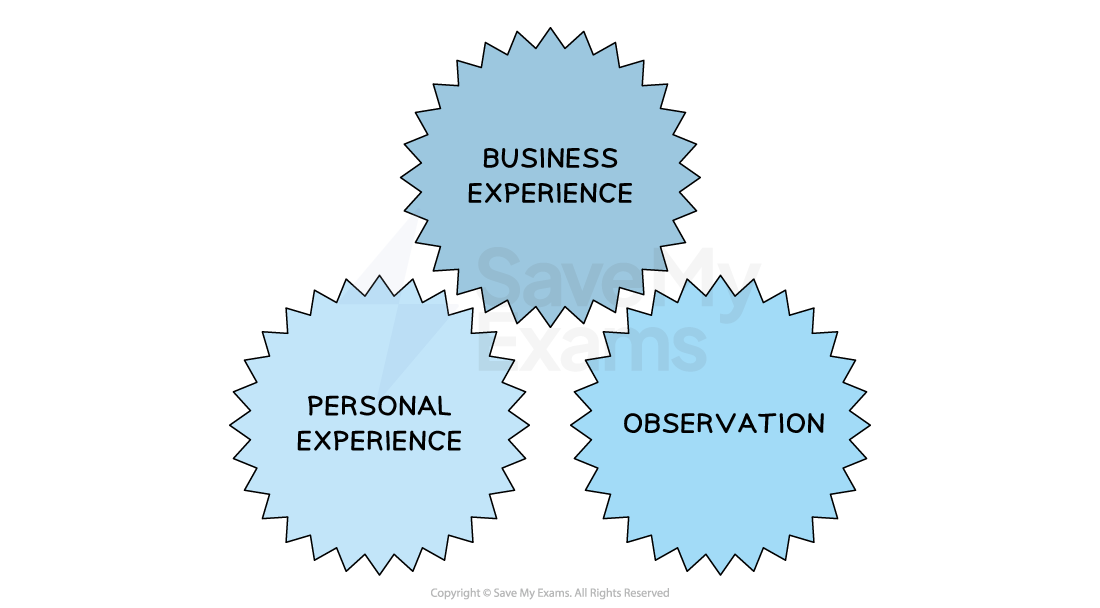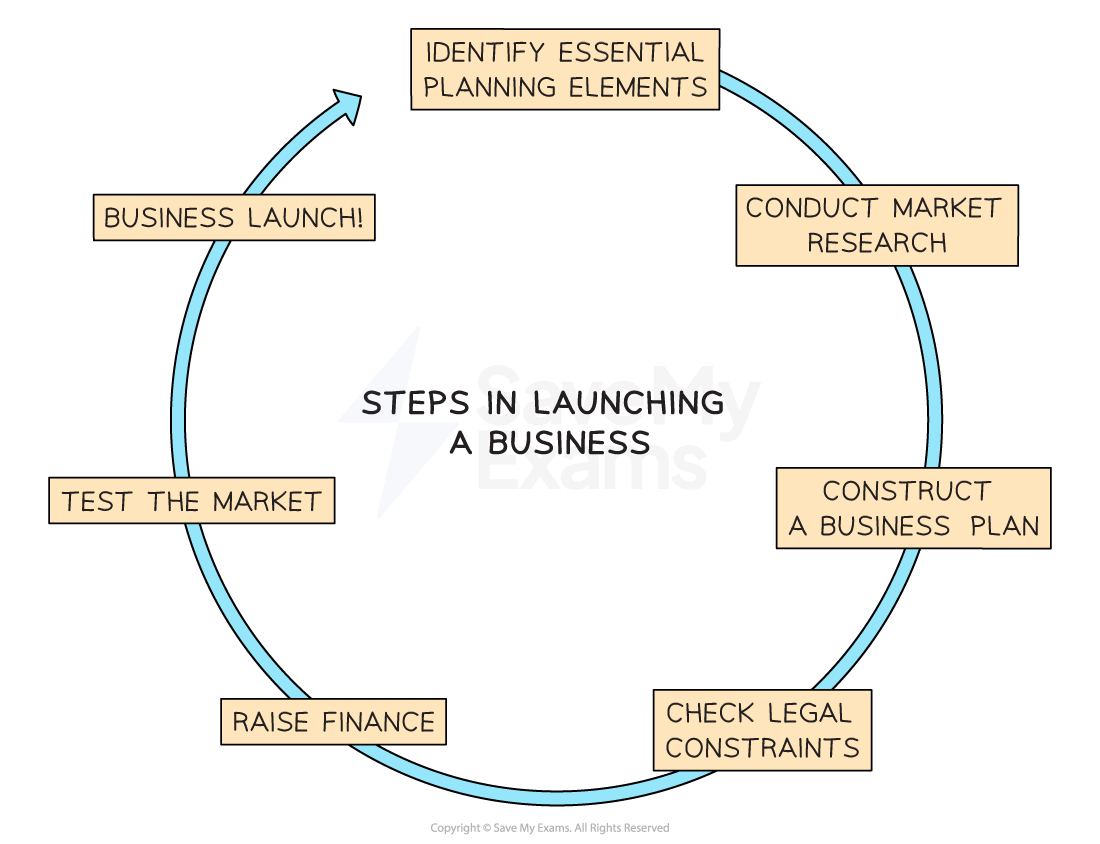- All businesses start with an idea that fundamentally identifies a product or service that the entrepreneur intends to offer
- Ideas can be generated from a range of sources

Sources of business ideas
- Once a suitable idea has been identified the entrepreneur is likely to take a series of steps to reduce risk and improve the chances of success

Steps to Successfully Launch a Business
Step
|
Explanation
|
|
1. Identify essential elements
|
- Essential elements that need to be decided include
- Business and product name
- The location of the business
- The form of ownership the business will take
- Equipment required
- Operational format and infrastructure
|
|
2. Conduct market research
|
- Market research should be carried out to determine the needs of customers
- Price, design and quality expectations
- Desirable product features and benefits
- Suitable promotional activity
- Preferred distribution options
- As well as this research into the nature of the intended market should be conducted
- Competitors, their products and prices and level of threat
- Rate of market growth
- Potential marke niches
- Relevant external factors that may impact on success
- economic conditions
- legal factors
- demographic structure
|
|
3. Construct a business plan
|
- A business plan sets out how the entrepreneur intends to realise their objectives and run the business
- Without a business plan it may be difficult raise money from financial institutions or investors
- A business plan fulfils a range of internal purposes
- It encourages the entrepreneur to think through the business in a logical and structured way and to set out the stages in the achievement of the business objectives
- It enables the entrepreneur to plot business progress against the plan
- It identifies both the resources needed and the time when they are required
- It is a way to make all stakeholders aware of the businesses direction
|
|
4. Check legal constraints
|
- Before starting the business the entrepreneur should ensure that all legal requirements have been met and that legislation related to the product or market in which it is to operate have been reviewed
- The package of laws to which a business must adhere will depend upon the country in which it operates though there are several areas where legislation commonly exists around the world including
- Employment, pay and conditions
- Health & Safety
- Consumer protection
- The provision of financial products
- Company formation
|
|
5. Raise finance
|
- The entrepreneur is likely to invest some of their own capital into the business
- Other sources of funds commonly used by start-up businesses include
- Banks
- Friends and family
- Investors
- Business angels
- Crowdfunding
- Peer to peer lending
|
|
6. Test the market
|
- Initially launching the business on a small scale or selling a limited range of products is a sensible option, especially for first-time entrepreneurs
- The entrepreneur can establish whether the business idea will be well-received and can identify at an early stage the relative popularity of products
|


